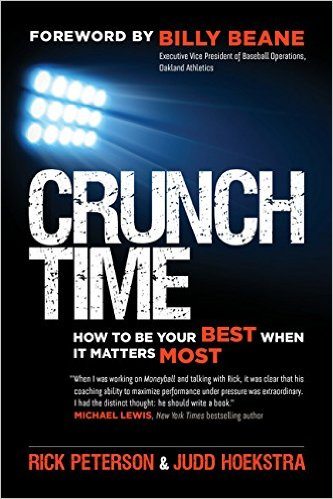As one of the eternal rites of Spring, Opening Day in professional baseball always take me back to my 30 years as a professional pitching coach, from Oakland to Milwaukee to Baltimore and New York. I remember both the optimism and the challenges we felt during all the pomp and circumstance, from that first filling of the stands to the first pitch hitting the catcher’s glove.
Every team, every athlete, every fan, and every coach thinks, This may be the year. Which is quickly followed by a flurry of questions. From a coach’s point of view, I always wondered: Do we have the right combination of a winning culture, strategy and execution? Do we have the pitching, fielding and hitting to go all the way? The right mix of youth and veteran leadership? Did we have the depth to overcome potential injuries? Did we have a growth mindset or a fixed mindset? And: Are we really doing all we can to be successful?
Opening Day may have a different meaning in every business, but executives and leaders in any field deal with the same core challenges. Whether initiating a sales year, launching a new marketing campaign or managing a multinational project, there are limitless prospects, daunting pressures, and incredibly high stakes.

To tackle this I saw myself as the ultimate One-Minute Manager, as described in Ken Blanchard’s bestseller. The pitching coach is the only uniformed person in any sport who goes on the field during a game to turn around a pressure situation in one minute. Millions of dollars were riding on every pitch. But the strategies I coached my pitchers with apply to any leader or executive. A great coach — in sports or business —helps us create a winning mindset, set clear goals, praise our progress toward those goals and redirects our performance when it’s off track.
Here are the 5 coaching tips for a championship season:
Shift Your Mindset
Your mindset profoundly affects the way you lead your life, and the success you will or will not achieve. We all have either a fixed mindset or a growth mindset. In a fixed mindset, you see your perspective, opinions, talents and abilities as set — and your mind is closed to new possibilities. Your fate is to go through life being “right” and avoiding challenge and failure. But in a growth mindset you see yourself as fluid, a work in progress.
A growth mindset encourages learning and effort, and leads you to embrace challenges and new opportunities. It enables you to learn a key skill: reframing, or consciously and intentionally thinking about a situation in a new or different way. Then you can reframe pressure or threatening situations into opportunities for success.
Identify Your Motivation
Our motivation is the precursor to our actions: Why we do something is more important than what we do. So I challenge those I coach to consider their motivations and ask themselves direct questions about what’s really driving them.
Try asking: Why am I doing this? Is my motivation to help or is it self-serving? Do I want to win or be the best I can be? Am I motivated only by money, or also to make a difference in other people’s lives? Asking these or similar questions can create a clearer pathway to success.
Practice Chunking
Chunking is the process of breaking down a seemingly overwhelming goal into smaller, bite-sized, short-term process goals. This practice allows your mind to be calm, focused, relaxed and to stay in the moment, especially in pressure situations.
In baseball, we were always coaching our pitchers to focus on executing one pitch at a time, each hitter is a separate game; Avoid focusing on end of season goals. Hit the Glove was our mantra. And it worked. It’s equally effective in business: break an annual sales quota into daily goals, such as a number of high-quality interactions with customers and prospects. High-quality interactions are those that advance a sale and/or the relationship — that’s an example of a salesperson’s version of Hit the Glove. Focusing on making a quota of daily, high-quality interactions with customers actually builds towards the big goal. It’s all about the power of small wins: they can boost our work/ life fulfillment tremendously.
Relax Your Mind
Whether in business or sports, all successful people stay calm and focused when the pressure hits. As a coach, I use “mindfulness” to cover a whole range of practices used to calm the mind and gain clarity of thought, including guided meditation, prayer, journaling, physical exercise, and even walking on a beach. The most popular course among Google’s employees is “Search Inside Yourself.” They call this technique Relaxed Concentration. Whatever you call it, the focus is on our awareness or “being,” not on what we are “doing.”
The busier we are, the more we need such practices. Just as an athlete needs down time to recover physically, so does the mind. Mindfulness allows our mind to relax from our everyday pressures and stress and helps us to think more clearly. Studies show that regular practice helps us make better decisions, experience more calm and focus, and sleep better. It can even lower our blood pressure.
Acknowledge Successes
Often, we’re so focused on what we haven’t done or need to do that we lose sight on what we’ve already achieved. Take time to acknowledge and celebrate the small progress you make. Make a list of what you’ve accomplished at the end of each day. You’ll probably be amazed at what you’ve done. This simple practice helps keep our minds focused on the positive, boosting our confidence and happiness factor. It can go a long way to contributing to our success.
Millions will go out and enjoy the Thrill of the Game in the coming weeks, from Little League to the Big Leagues. We’re all striving for success — and hope to achieve some form of greatness in whatever we do. So treat every day as your own personal Opening Day — and follow these five tips to help you succeed at whatever game you play.
Rick Peterson has coached some of baseball’s best pitchers in the past 20 years, including Cy Young Award winners and Hall of Famers. He was the Oakland Athletics’ pitching coach during the famed Moneyball era and served as a pitching coach with the New York Mets, Chicago White Sox, Pittsburgh Pirates, and Milwaukee Brewers. He is a sought after motivational speaker, business leadership coach and author. He and Judd Hoekstra are the authors of Crunch Time: How To Be Your Best When It Matters Most. For more information go to www.rickpetersoncoaching.com.







